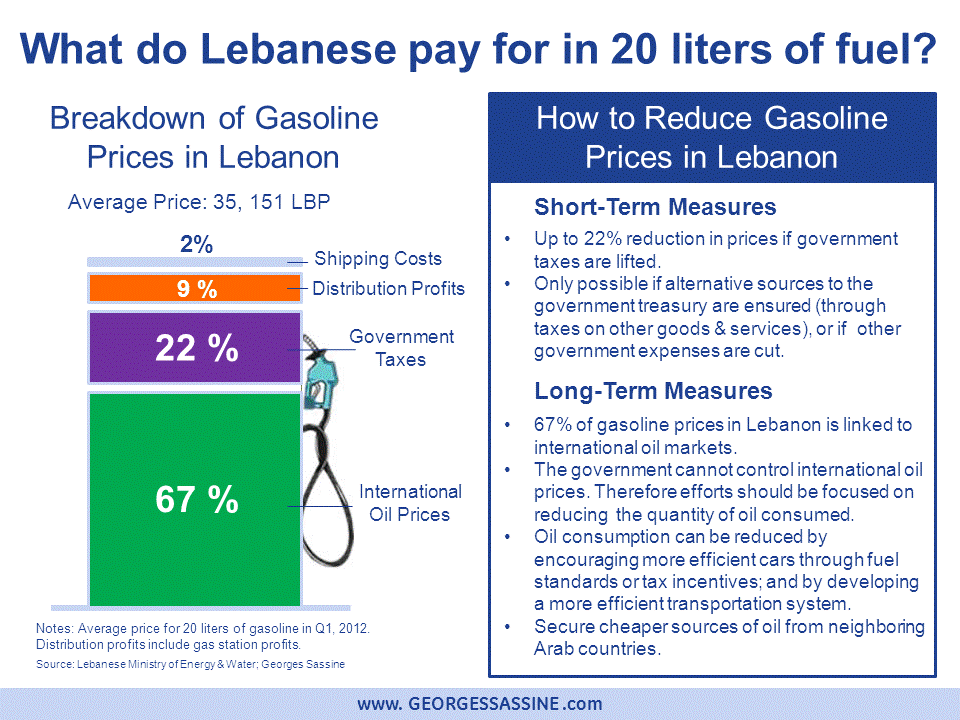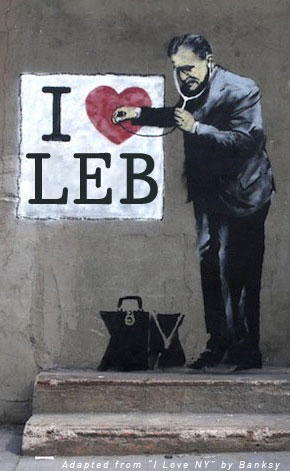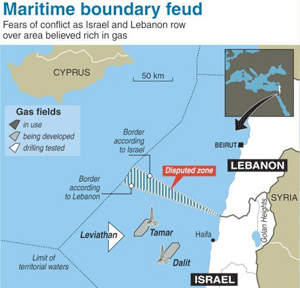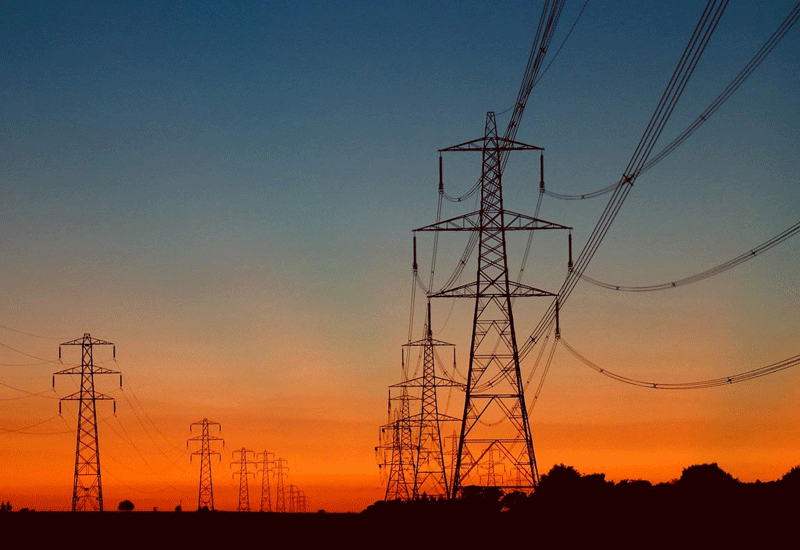By Georges Pierre Sassine
A version of this article appeared in the print edition of The Daily Star on March 06, 2012, on page 7.
Lebanese are thrilled about the prospect of tapping their recently discovered offshore oil and gas reserves. However, examples from other countries show this could easily turn into a curse and invite corruption.
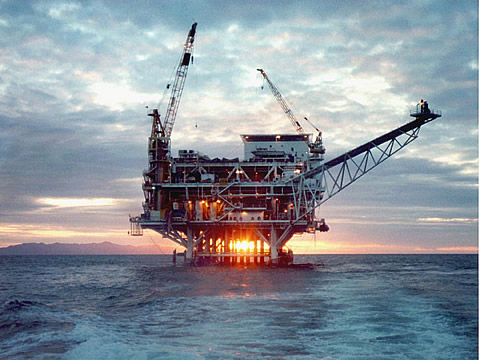
Economists have a name for this negative phenomenon, namely the “resource curse.” Countries with abundant natural resources such as oil and gas, frequently experience lower economic growth, higher levels of corruption, and in extreme cases civil wars. This has been especially visible in Africa, where the Democratic Republic of the Congo, Sudan and Angola have all been torn by civil unrest.
Nigeria is a prime example where oil has increased the corruption of the political class. Oil exports constitute one-third of Nigeria’s economy. However, contrary to what one would expect, the economy could be worse off if oil prices increase in the long run. Paul Collier of Oxford University recently projected that if oil prices doubled in the next 25 years, Nigeria’s economic output would decrease by two-thirds when compared with what it might otherwise have been.
Fortunately, the resource curse can be avoided and there are many success stories to draw upon. Norway, for instance, used its oil to achieve the world’s highest living standards. Similarly, Malaysia has used its reserves to successfully power a transition out of mass poverty and toward the development of a middle-income economy.
The resource curse can be avoided … Lebanese policymakers should examine lessons from the successes and failures of other countries.Georges Sassine
Lebanese policymakers should examine the lessons from the successes and failures of other resource-rich countries, and understand the key causes of the resource curse in order to avert them. Threats include corruption, poor implementation of regulations, inequitable distribution of oil revenues, volatility of oil prices, non-diversification of the economy and environmental risks.
Success or failure will rely on the ability of the government to manage and regulate these risks. Experts have recognized the main remedies to be transparency and accountability, and a strong system of checks and balances in the governance process. Lebanese should better understand the three major questions shaping the success of the energy industry: How much oil and gas will be produced; how much money it will generate; and how the revenues will be spent.
Corruption should be avoided at both the extraction phase and once revenues start flowing. For starters, it is essential to make extraction contracts public and disclose how much oil will be produced. In Iraq and Nigeria, 40-50 percent of the total oil produced is illegally smuggled and traded in the black market. Failure to monitor and disclose extraction figures facilitates corruption, losing revenues that could potentially benefit Lebanon’s citizens.
Internationally, initiatives are making headway to ensure financial transparency, especially in the oil and gas sector. Lebanon should ratify and implement international standards such as those established by the Extractive Industries Transparency Initiative (EITI), and the United Nations Convention against Corruption (UNCAC). Under EITI standards the government would be required to publish revenues incurred from oil and gas sales. Once these become public knowledge, it would be much more difficult for officials to siphon off money.
However, ratifying international treaties is only the first step toward preventing corruption. For example, Lebanon ratified UNCAC in October 2008, but still lacks the appropriate legal mechanisms to implement it. Parliament must complement these treaties with national legislation and institutions to enforce their regulations.
Given the loopholes in the Lebanese legal system, another means of fighting corruption, in addition to enhancing Lebanese institutions, is through implementation of the regulations in the home countries of oil companies operating in Lebanon. Businesses in the United States and in the Organization for Economic Cooperation and Development countries have recently come under the authority of anti-bribery codes as their own governments have punished them in bribery cases involving foreign government officials.
A third key choice then facing Lebanon is how to manage and spend its oil and gas money. Should the revenues be spent on immediate needs, for instance to reduce the public debt? Or should they be saved for future generations?
Lebanon can significantly grow its economy if the right mechanisms surrounding its oil and gas sector are put in place. This will only happen if Lebanese citizens are active participants in the process, remain informed, and insist on claiming their rights.Georges Sassine
After the bidding process, which is expected to be completed in the next few months, international oil companies will pay the Lebanese government millions of dollars for rights to extract oil and gas. Ideally, this money would be best spent developing Lebanon’s infrastructure. However, realistically, once additional revenues start flowing in, most ministries (and ministers) would want their share of the proceeds: The Labor Ministry might argue for minimum wage increases; the Defense Ministry for increasing military spending; and so on. This would initiate messy political infighting.
Such can be avoided by focusing from the start on infrastructure development. The Lebanese government could auction the extraction rights for infrastructure instead of money. In this case, consortiums of both oil and construction companies would make offers in terms of the number of infrastructure projects prioritized by the Lebanese government, instead of financial compensation.
Nevertheless, the bulk of oil and gas wealth will flow to the Lebanese Treasury. Prime Minister Najib Mikati has announced that funds will go toward reducing the public debt to 60 percent of GDP – from the current 130 percent – before fulfilling other expenditures. However, there has been no mention of earmarking funds for future needs. The state is responsible for saving part of the oil revenues for future generations. A stabilization fund would need to be set up to cushion the economy and avoid deep cuts in government oil revenues in case of sharp declines in international oil and gas prices.
All of these initiatives can be bolstered by a clear system of checks and balances – not only between the executive and legislative branches, but also between the government and society. The core principle here is that natural resources belong to all Lebanese citizens, and the government’s sole responsibility is to manage these resources on our behalf. Lebanese media and civil society should play an important role in preserving our rights, no less than non-governmental organizations and watchdog organizations.
Lebanon can significantly grow its economy if the right mechanisms surrounding its oil and gas sector are put in place. This will only happen, however, if Lebanese citizens are active participants in the process, remain informed, and insist on claiming their rights.
Georges Pierre Sassine is an energy policy expert, and a Harvard University alumnus. The opinions expressed here are his own. He wrote this commentary for THE DAILY STAR.
A version of this article appeared in the print edition of The Daily Star on March 06, 2012, on page 7.
(The Daily Star: Lebanon News: http://www.dailystar.com.lb)


